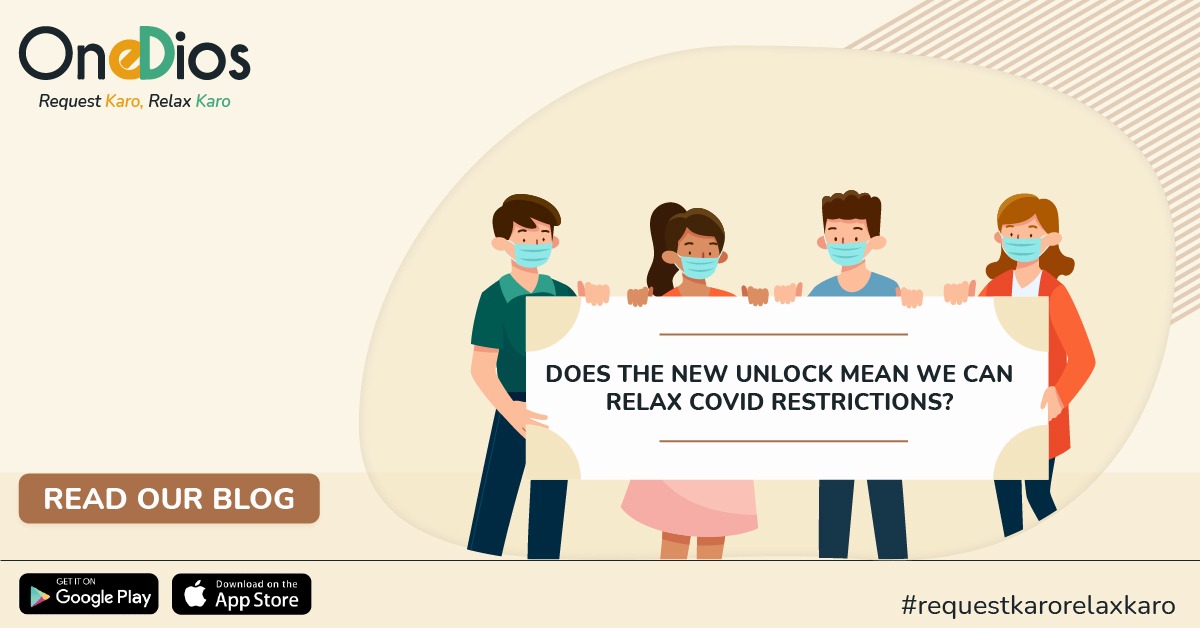All states of India have started the unlocking process after the devastating second wave forced governments to put restrictions in place again. The most obvious question in front of us is how to respond to these relaxations in the lockdowns. The eagerness among people to resume socio-economic activities that were part of our lives during the pre-COVID days is very natural.
While it is true that the unlocking is necessary for economic activities to resume, and for the country to get back on the path of growth, it also holds the potential to send us back into another COVID health crisis.
COVID unlock does not mean license for carelessness
Obviously, people would want a vacation, but it is a great mistake to immediately rush to any popular destinations. In the past few days, local administrations from different states have banned popular destinations from gathering completely. While governments are responsible for taking care of the lockdowns norms, people have to play their part as well and they should know that crowds are still dangerous and must be avoided at all costs.
Why are crowds dangerous?
Firstly, the vaccination rate has not been impressive. Secondly, most people have received only one dose of the vaccine. The proportion of the population getting vaccinated is on the rise but still not that much to start gatherings for entertainment purposes.
Similarly, several pieces of research and the data on the effectiveness of the vaccines have been subjective, and there are still different opinions on the issue.
The rise in new variants are a matter of concern
We all are the witness of how the delta variant wreaked havoc on India. Apart from that, different variants are on a constant rise with mutations happening at a much faster rate than earlier. The severity and toughness of these variants are being tested, until that time we need to be more restricted than pre-covid days.
The delta variant is by far the most dangerous COVID mutation. The effectiveness of the vaccines depends on the nature of the variants.
Inevitable COVID third wave
According to government sources and scientific community reports, the possibility of the third COVID wave can not be denied. Though there is a lack of unanimity over the third wave impact, there is no doubt that it can be as severe as the second wave. So, COVID unlock needs to be strictly adhered to with necessary precautions to avoid serious illness.
No one is safe until everyone is safe
Most Experts agree on this aphorism by now, which is undoubtedly the most effective way to tackle the covid disease. The people should get vaccinated not only for themselves but for the entire community. Behavioural changes can not be compromised, with masking and physical distancing, forming the lifeline against the threat from these variants.
These are not normal times, and the collective effort in COVID unlock is needed to get back on the tracks of life.
You can search for vaccine slot availability on the ‘Vaccine Slot Finder’ on the OneDios app. It allows you to have a streamlined and uncomplicated experience while searching for your vaccine slot. You have to simply enter your Pin Code to get the relevant information about slot availability. OneDios COVID 19 Vaccine Slot Finder empowers you to efficiently check available vaccine slots in your area by making the process easygoing, painless, and reliable.
You can also track vaccine-related statistics on the “Vaccination Dashboard” available on the OneDios app. The data for the dashboard is sourced from official Co-Win Statistics. Through this dashboard, you can stay informed about the number of sites conducting vaccination and total vaccination doses in real-time. Relevant data and trends are presented in user-friendly graphs, categories, and visual formats for greater access. You can also check updated data by selecting your state or district to know about specific statistics.
